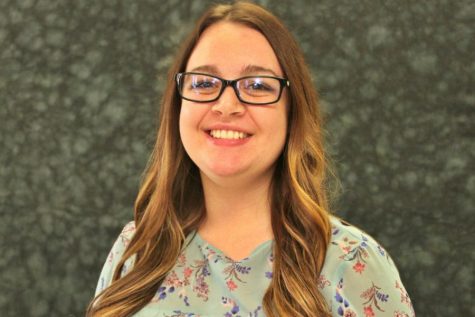Seven things juniors should do for college
IMAGE / Ave’r McKay
Juniors should do these seven things in preparation for college.
The second semester has recently begun, and for juniors, it’s the last year of school before they head off to college.
Though a year sounds like a long time, it will fly by and, before you know it, you will be walking across the stage receiving your diploma. However, before you take that next step in your life there are a few things you need to do in order to prepare.
1. Visit Colleges
It may be summer vacation and you’re dying to take a trip to the beach and going to a college sounds like a drag, but it is an important part of deciding your future.
You may not think so, but visiting a college can completely alter your decisions of what college you want to attend.
“Visiting colleges can be very helpful in determining which one is the right choice for you,” Mrs. Corrine Walworth, guidance counselor, said. “It gives you the chance to see the campus and find out more about the programs they offer.”
Students can register for college visits through the college’s website or by calling the admissions department.
2. Create a list
Even if your career field is undecided, you should have an idea on what college you may want to attend. First, decide if you would like to go local or go away for college. Once you decide that, look for colleges in that area.
“Research the colleges you may want to attend,” Walworth said. “Check out college websites for information about the programs they offer.”
There are many factors that may influence the college you want to attend. These may include cost, the size of the school, or if you are required to live in a dorm or not.
Narrowing down the colleges that include the factors of your choice will make the decision easier.
3. Talk to your counselors
You may be one of the students who see your counselor on a weekly basis or one of the students who has never spoken three words to your counselor.
No matter which one you are, meeting with your counselor is important your junior and senior years.
Counselors are there to help you plan your future. They can and will give you advice on how to manage college debt, what classes to take according to your career choice, and tell you what scores you need on tests, such as the SAT and ACT, to make your applications look good.
Counselors are here to guide you to help better your future and get you on the correct path, so let them.
4. Keep your grades up
If studying hasn’t really been your forte, you may want to start working at developing good study habits now.
Developing good study habits and maintaining a high GPA are important in preparing for college.
We’ve all heard our teachers say, “It won’t be this easy in college. Your professors won’t remind you that you have homework or a test.” But who really believes them? If you don’t, you better start now.
Most professors just give you the syllabus and if you don’t pay attention to what test is when, that’s on you.
Everyone has heard that GPA is important when it comes to applying to colleges, but some students still don’t care about their GPA. For students wanting to go to elite universities, this can lower their chances of being accepted.
For example, the average GPA at University of Michigan is 3.82. This is an average grade of an A- throughout your student career.
5. Do activities in your community
Everyone wants to make themselves seem better than their peers, even if they don’t realize it. One way to do that and make your college applications look good is accumulating service hours.
At Kearsley, every senior is required to have at least six service hours in order to graduate, but why not get more? Despite what you have been told, overachieving can be cool. If you get 100 or more service hours, you will be given an extra cord to wear at graduation.
As well as getting the extra cord, a large amount of service hours will make your college applications look better. Colleges look for students who do well in school and who are active helpers in their community.
Colleges see someone who can maintain a high grade point and continue to be involved in their community as a person with a good work ethic and as someone who will excel at their school.
Service hours can come from any activity that you do for your community that you don’t get paid for, such as volunteering at a local soup kitchen or volunteering at your school’s sporting events.
6. Do well on the SAT/ACT
Juniors will be taking the SAT as a portion of their Michigan Merit Exam for free at the school on April 11.
If you don’t do well on your SAT, don’t worry. It won’t end your chances of going to a good college. Students are able to take the SAT as many times as they want; however, there is a fee for it after the first time.
To take the SAT again, without the essay portion, the fee will be $45. The SAT with the essay portion included will be an additional $12. You can look up dates, additional fees, and ways to register for the exam at the College Board website.
Don’t be embarrassed if you have to take the SAT more than once. It is actually recommended.
“Preparing for and taking the ACT and/or SAT multiple times can also be beneficial in college admission and scholarships,” Walworth said.
Everyone knows the more scholarships you get the better. According to the Institute for College Access and Success, the average debt a college student who was from the Class of 2015 is $30,100 per borrower. Every scholarship you get will bring down that number, and every little bit helps.
7. Start applying as soon as possible
Everyone has a bit of procrastination in them. But if you happen to be the master of procrastinating, listen up.
The sooner you start applying for college, the better.
“It’s important to apply early because it can impact admissions and scholarships, especially at highly selective colleges,” Walworth said.
Students can start applying to colleges in August, and it is recommended to have them completed by the end of October.

Birthday: June 3, 2000
Extracurricular activities: volleyball
Hobbies: Reading
Plans after high school: Go to college to be a sign language...





